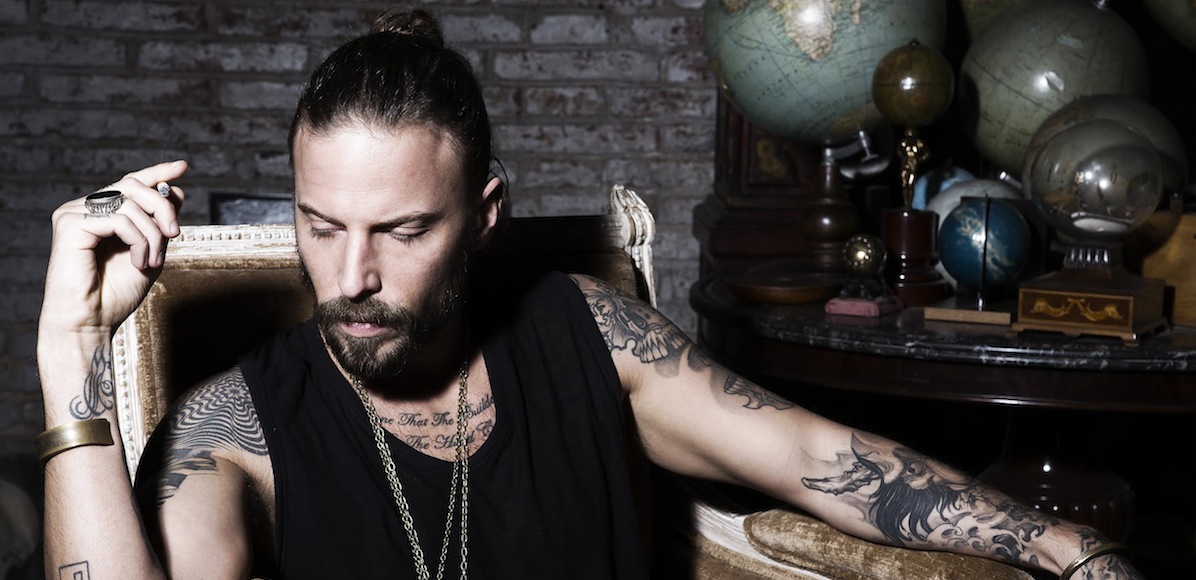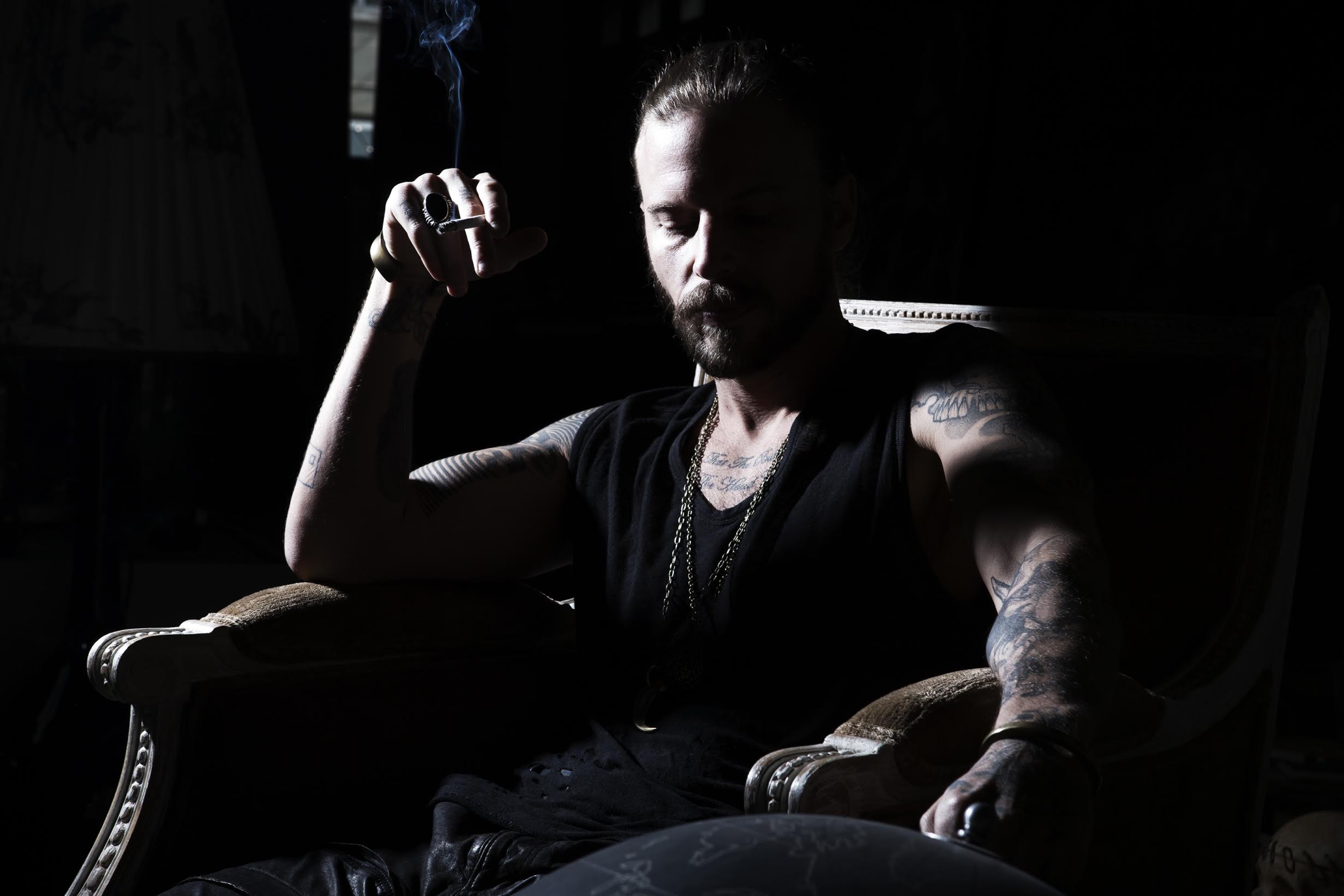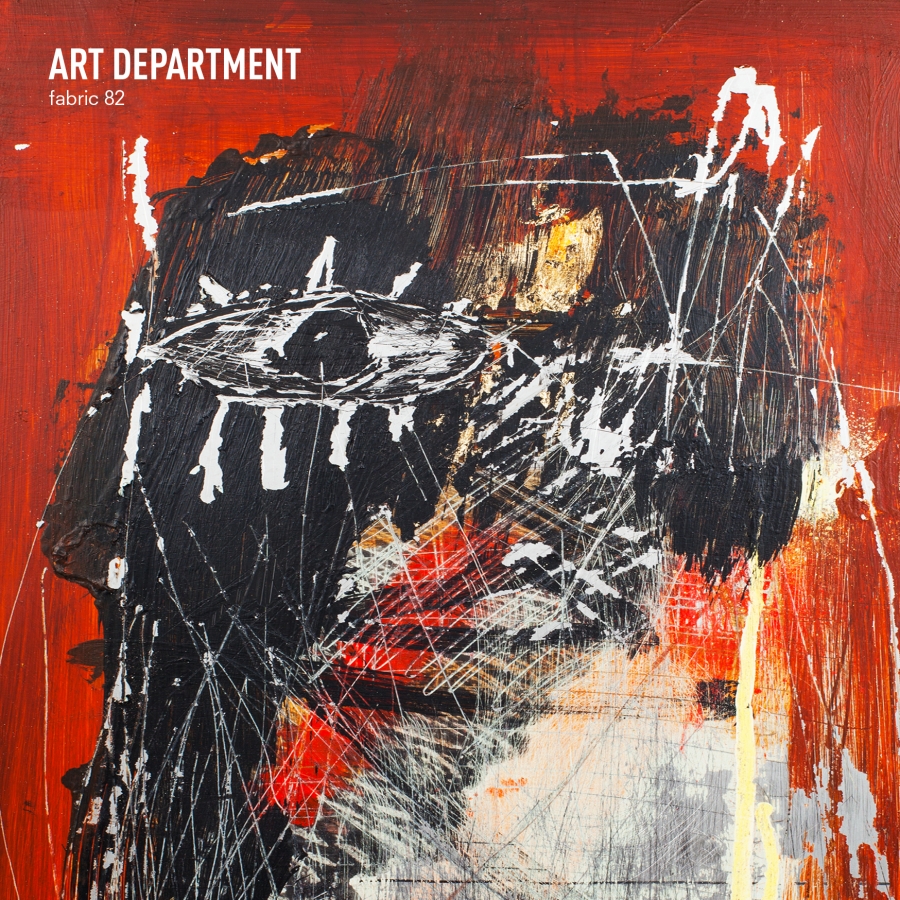Q&A: Art Department’s Jonny White
The No.19 label chief charts the path forward as a solo artist.

Q&A: Art Department’s Jonny White
The No.19 label chief charts the path forward as a solo artist.

Since its formation in 2009, the Toronto-based Art Department project—the duo of Kenny Glasgow and Jonny White—has grown to become a linchpin of the electronic music scene, lauded across the globe for its dark and brooding output. But this past April, just months after duo’s second studio album hit the shops, it was announced via Facebook that Glasgow had disembarked the collaboration to pursue a career as a solo artist. It was an unexpected announcement, one that raised questions as to how White would carry the project forward as a solo artist. Upon the release of Fabric 82, the first page in Art Department’s latest chapter, XLR8R spoke with White to learn about the split, and to hear his thoughts on the future of the project.
Looking back at all you achieved as a collaboration, you must be extremely proud. Do you see this as a fresh start for Art Department, or a just a continuation of the same project?
I’m very proud of what Kenny and I achieved with Art Department. We reached so many goals together with the music that, quite honestly, were far beyond what I ever hoped to achieve when I first got into this. It’s impossible to really look at this as a fresh start now after all of these years. Musically speaking, I am sure it will change dramatically—but I think its just more of trip back to how we were both doing it before we got together than it is a fresh start.
“I do feel liberated from having to deliver something that people expected from Art Department as they knew it.”
How do you see Art Department growing artistically moving forward as a solo act?
The split just gives me an opportunity to make more selfish decisions for Art Department when it comes to touring and scheduling. So, in short, making more time for myself to be in the studio is how I see myself and the project growing artistically. Basically, while living on the road and running the business of Art Department, more often than not I find myself looking outward and getting distracted by the media and all of the work behind the brand. Instead, I should be looking inwards, because this is where you go when you’re alone in the studio—and that’s where you need to go to grow.
Musically speaking, I’m not putting any tags or pressure on what I’m going to do. In what feels like the first time in a long time, I’m writing without the feeling that I have to deliver a particular sound that fits into this particular box that we’ve created for ourselves as a brand. If I outlined a vision for the sound of the project now, I would just be putting myself back into a box. In a way, I guess you could actually call that real growth because I do feel liberated from having to deliver something that people expected from Art Department as they knew it.
Does the fact that you will continue under the Art Department name mark at least an intention to produce music that will bear some resemblance to your previous output?
I appreciate some people might feel that I have some kind of responsibility to deliver “Art Department–sounding” records if I’m going to carry on with it, but it’s actually the opposite. There are no rules when it comes to this, or when it comes to being an artist. We worked very hard to build a brand, and I’m in a very privileged position now to take that platform and use it to promote and expose people to the stuff I’m more interested in right now. I think I’m also lucky to have a lot of people’s trust when it comes to DJing at this stage in my career—so I’m hoping people are going to be open minded and really listen.

Regarding the split, why did the decision come now? After two albums, six year and a dozen EPs—including last year’s Natural Selection—did you feel that the collaborative project had exhausted itself creatively?
No—I don’t think we’d run out of ideas or anything because that would be difficult when you have two hyper-creative people working on something. Even if one’s “off,” the other can be contributing ideas. A mutual slump is a pretty depressing thought as a duo. It was really just time to explore our own solo productions again after five years working on this one project. Kenny was able to find the time to write a lot of cool music over the past couple of years that needs to come out. Releasing music as a duo is one thing, but writing on your own is an even more personal experience and inspired him to pursue other goals right now. It’s really just that simple.
You’ve just completed the Fabric 82 mix. Did you feel added pressure, given that it’s your first mix since Kenny’s departure?
No. There are a couple of reasons why I don’t feel that type of pressure when it comes to mixes…or production, I guess. One is because I have always compiled all of the Art Department mixes; it’s just part of how we evenly distributed the work load while touring the past five years so this isn’t a new experience.
The other reason is because I’m not really bothered by public opinion. If people hated what I did with it, that is their prerogative and that’s okay with me. I’m just playing music I like. You have to have a thick skin in this business, and you need to be confident in what you’re doing. If you start to worry about public opinion, which is really the only factor that would imply the “pressure,” as you call it, you’re going to become confused, unsure of yourself and then you’re not going to deliver an honest mix, record or whatever it is you’re working on. Once that happens…what’s the point?

Would you say the mix gives an accurate portrayal of where you plan to take Art Department?
I can’t really say that, because I don’t really plan a whole lot. I tend to change and evolve as a DJ quite frequently. It’s always been a really natural cycle or evolution for me, and this is what has always kept me really inspired and interested in what I do. I’m always searching for new sounds, new music—and I can be very influenced by whatever I’m into at the moment. Stylistically, I can be so focused on something I’m interested in at one moment and something different the next—and that becomes very apparent in the music I’m playing at the time. Not only that, but this is just sort of a moment in time that I tried to capture with the mix, and also really took into account the style of music that I like to play at Fabric because I really wanted it to be representative of what I do and feel at the club. That doesn’t really translate into “this is what I will do for the foreseeable future”.
Besides the Fabric CD, what are your other immediate plans with Art Department, in a production, DJ and live sense?
As far as production goes, we’re still releasing remix packages from the Natural Selection album throughout most of 2015—with mixes from Jamie Jones, Radio Slave, the Martinez Brothers, Soul Clap, Nitin, Maher Daniel, and Mathew Jonson still to come. So, aside from a remix or two, there won’t be much new Art Department material to release. It’s actually really great timing because it allows all of that material to breathe and for us to focus on Kenny’s solo stuff —which is my label’s and Kenny’s number one priority at the moment. I’m launching three new record labels over summer as well, which is exciting—and that’s a ton of work so that is keeping me quite busy amid a crazy touring schedule. I’m just writing music at my own pace now, when I can be home, not really knowing if it will all be released as Art Department or not. But there is music being written—I’m just keeping it under my pillow for now.
After six years producing in a collaborative project, producing as a solo artist again must throw up some challenges. How much time do you spend in the studio—and how are you adapting to it?
To be honest, I can’t say it really presents any challenges. I mean, if I was trying to write songs that sound like what we’ve been doing for the past five years, especially vocal stuff…then yeah, that would present a massive challenge because a lot of those ideas came from Kenny, and I can’t fucking sing to save my life. But I’m not looking to replicate a sound that, quite frankly, cannot be duplicated without both of us. Right now, it just feels like freedom to make whatever I feel like making; I just haven’t decided what I want the sound to be going forward and I’m not really trying to figure it out.
Outside of Art Department, do you intend to produce as a solo artist under a different moniker—or, going forward, will Art Department be your only solo project?
Actually, I currently release music under other monikers and have done for years—but I have never let anybody know it was me. The reason for the aliases had always been due to the fact that I write several different styles of music and didn’t want to confuse any of the brands—especially Art Department’s. However, now that Art Department is just I, there might not really be any need for it.
You and Kenny will still be working together on certain projects, with his solo work being released on No.19 and the launch of the Social Experiment label. Do you foresee that either of you will have any input in each other’s solo work, or do you both keep the solo productions to yourselves?
We’ve been working together for so long and I don’t think that will ever really change. I like to think that one of my strongest suits, possibly even more than my own production, is an ability to bring out the best in the artists I work with. Kenny is probably the most notable example of that. I have always been so interested in and inspired by his music that I’ll always offer to work on anything he has going on, in whatever capacity he would like me to do so. We’ve always looked to each other for feedback on whatever we’re doing individually, the way everyone does with their friends who are also artists—and I think that will remain the same for life.
“I’m not gonna roll through life scared to take risks.”
Do you think that by continuing the project as a solo artist, there is a risk of damaging the legacy that the project has already left?
Sure, I guess so—but I don’t think that either of us had thought of that at all until just now, so thanks for that. [laughs] Listen, whatever happens, happens—I’m not gonna roll through life scared to take risks; you do what you feel is right for you as long as you’re not going to harm anyone but yourself in the process—and you must deal with the failure or the learning experience if it comes to that. I know some fans are going to be upset with the change, simply because they want you to stick with what they love already���but if people are willing to open their minds and really listen, rather than just wait for an opportunity to critique, there’s an opportunity here for them to see what else I can offer as Art Department. I’m not about to turn commercial, or forget what good music is. I play underground records that are produced by some really talented, forward-thinking artists. If people lose interest in that, I would be okay with finding another career.

